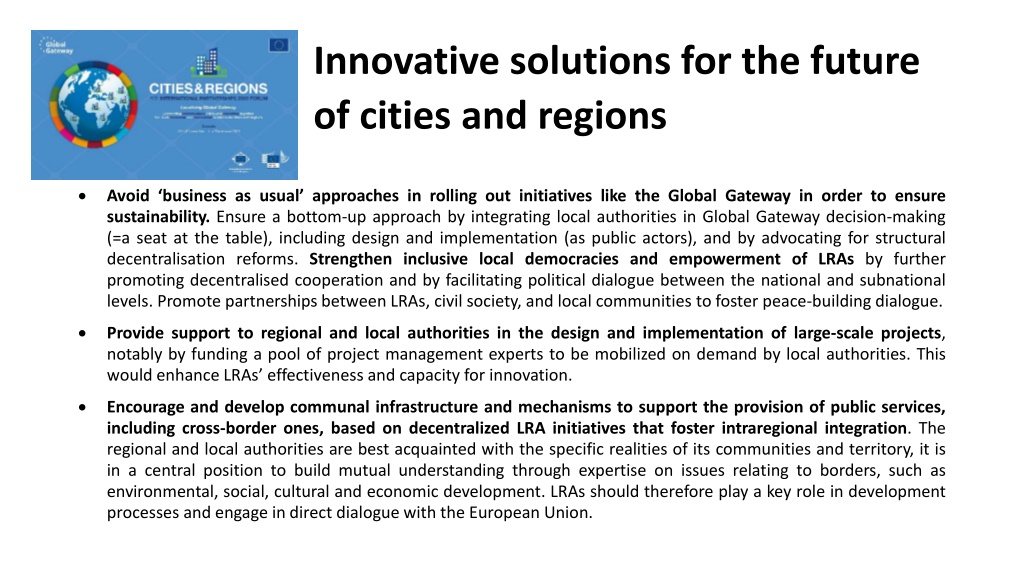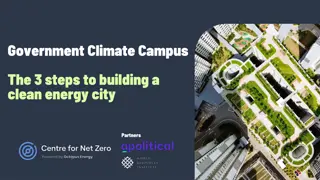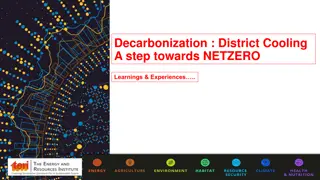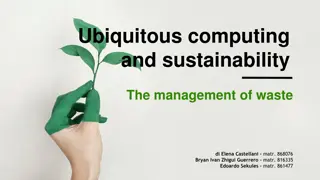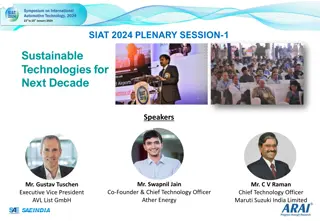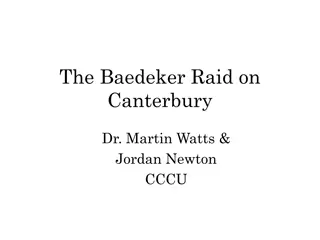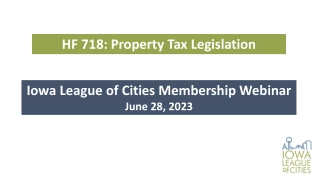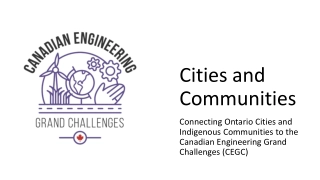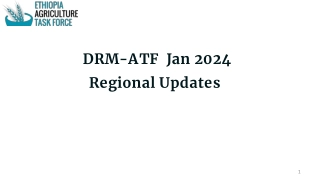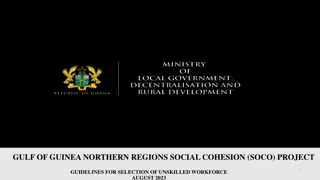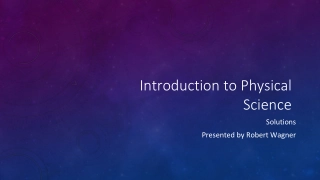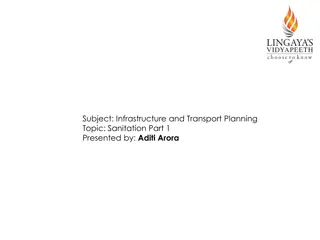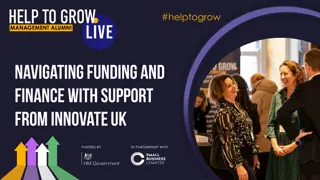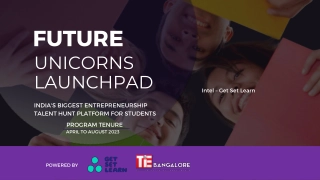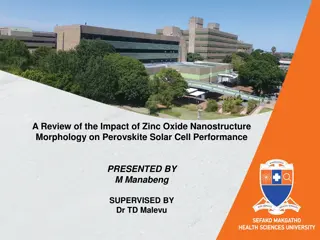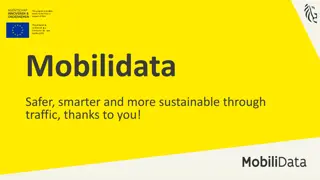Innovative solutions for the future of cities and regions.
Innovative solutions for the future of cities and regions emphasize a bottom-up approach, inclusive governance, and local empowerment in initiatives like the Global Gateway. Prioritizing decentralized decision-making, fostering partnerships, and investing locally are essential for ensuring sustainability and promoting community involvement in development projects.
Download Presentation
Please find below an Image/Link to download the presentation.
The content on the website is provided AS IS for your information and personal use only. It may not be sold, licensed, or shared on other websites without obtaining consent from the author. Download presentation by click this link. If you encounter any issues during the download, it is possible that the publisher has removed the file from their server.
Presentation Transcript
Innovative solutions for the future of cities and regions Avoid business as usual approaches in rolling out initiatives like the Global Gateway in order to ensure sustainability. Ensure a bottom-up approach by integrating local authorities in Global Gateway decision-making (=a seat at the table), including design and implementation (as public actors), and by advocating for structural decentralisation reforms. Strengthen inclusive local democracies and empowerment of LRAs by further promoting decentralised cooperation and by facilitating political dialogue between the national and subnational levels. Promote partnerships between LRAs, civil society, and local communities to foster peace-building dialogue. Provide support to regional and local authorities in the design and implementation of large-scale projects, notably by funding a pool of project management experts to be mobilized on demand by local authorities. This would enhance LRAs effectiveness and capacity for innovation. Encourage and develop communal infrastructure and mechanisms to support the provision of public services, including cross-border ones, based on decentralized LRA initiatives that foster intraregional integration. The regional and local authorities are best acquainted with the specific realities of its communities and territory, it is in a central position to build mutual understanding through expertise on issues relating to borders, such as environmental, social, cultural and economic development. LRAs should therefore play a key role in development processes and engage indirect dialogue with the European Union.
Inclusive governance and Inclusive governance and citizenship citizenship Encourage and facilitate direct access of LRAs, civil society organizations and citizens to the Global Gateway dialogue at European and local levels and foster a culture of consultation with multistakeholder systems with LRAs to feed into decision-making processes at all levels. Conduct a comprehensive assessment of all supported initiatives from a human rights perspective, based on criteria such as gender parity, social inclusion, equality for LGBTIQ diversity, and level of contribution to SDGs, to enhance people and communities equal access to services and participation in the social, cultural and democratic spheres, including in decision-making processes. Promoting the use of citizen participation tools in Global Gateway programs and ensuring that no segment of the population is left behind. The most vulnerable populations should have a chance to contribute to Global Gateway projects, notably through targeted capacity building. We encourage the creation of toolkits to foster citizens inclusion.
Investing locally The Global Gateway strategy must be built and implemented with LRA as the key actors. The EU Delegations shall be invited to work with LRAs in the implementation of the Global Gateway and should facilitate the access to local expertise. More data about Global Gateway projects and partners should be available at all levels. LRAs and their agencies (such as transport, waste, water and energy companies) should have direct access to financing for international SDG-related investments and value-driven projects, without state intermediation. Application rules, processes and methodologies should be adjusted accordingly, and more innovative mechanisms of access to guarantees should be provided to access financing. The initiation and implementation of public-private partnerships should be simplified and promoted under the condition that they are built in a people-centred approach. Investors must be involved earlier in the projects
Vibrant Intermediary Cities Incorporate the decentralization agenda into all European policies and cooperation programs with partner countries and regions, highlighting the crucial relevance and role of intermediary cities in achieving the SDGs. When assessing public administration reform and institutional architecture in partner countries, the EU must ensure that legislation delegating competence and powers, as well as training for the local level is effective. Create more funding opportunities for education, culture and creative industries activating an educational cultural gateway soft measure accompanying the main Global Gateway strategy. A program to support youth-oriented partnerships, exchanges, transfer of knowledge and co-production between European Culture Capitals and other partner continent s Capitals of Culture initiatives leading to the surrounding regions, should for instance be created. Encourage and support the creation of inter-communal infrastructure and mechanisms to provide relevant services to local communities in partnership with the private sector.
